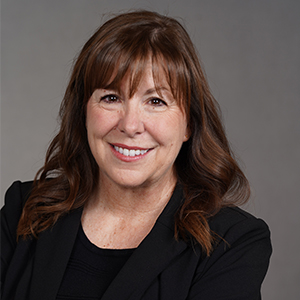Most tech CEOs emphasize how their technology empowers, not replaces, humans. But Pavan Agarwal, CEO of Sun West Mortgage Company and the creator of the Angel Ai technology, has a different perspective, which he shares in this interview with HousingWire Editor in Chief Sarah Wheeler. This interview has been edited for length and clarity.
Sarah Wheeler: What do people in the mortgage industry not understand about AI?
Pavan Agarwal: I think the mortgage industry is captivated by ChatGPT. That’s a good thing: I love ChatGPT because it raised awareness. Before, when you said AI, people thought you were talking about futuristic stuff, pie in the sky. Then ChatGPT came out and people realized AI is real and it’s here today.
But the mortgage industry and the real estate industry have kind of equated AI with ChatGPT. So there’s this assumption that ChatGPT is cute, it’s nice — it’s helpful for a marketing team. But high value? No.
High value is what we’re doing with Angel Ai: really calculating income, really reviewing documents, really running through tens of thousands of pages of federal and agency regulations and finding the best path. The creation of ChatGPT is revolutionary from a tech standpoint, but its application has been incremental.
However, on our side, what we’ve developed is fundamentally disruptive. Because 99% of what is done by humans in the mortgage industry, it does automatically.
SW: At which points are humans involved in the mortgage process at Sun West?
PA: We have humans helping in three steps of the process. The first is our Angelistas — the humans who get on the phone and call consumers. The second is when documents are scanned and the data is scrubbed off the documents, we have humans double check it, to make sure there’s no mistakes. And then a third human layer is when the AI is analyzing the rule or analyzing the request, and its confidence level isn’t high enough to issue a final answer, then it automatically loops in a human to make the decision.
And that’s really important, because remember, I put my money behind Angel Ai, so if we let loans go through with a low confidence level, then I’ve got a big problem on my hands — I’m going to have lots of loans on my balance sheet and that’s not good for business.
Increasing the confidence level speaks to the speed that we’ve been solving this and getting better at it. And as you get more and more answers, less and less human review is needed. There’s a lot of intermediate steps for any request I put in AI — it doesn’t just say one answer, it makes a series of decisions along the way to finally get to that answer.
If any one of those decisions has a low confidence score, then a human has to be involved. But just looking at the process we have in place today, we’ve really reduced the amount of human touchpoints.
SW: Most other companies talk about leveraging automation or AI to enhance the work of humans, but it sounds like you have a different goal.
PA: The goal is complete robotic manufacturing. That’s how every other product that you use is manufactured, from your cell phone to your automobile. It’s like the new Tesla with the Giga Press: it’s just press one button and the car squeezes out. And AI can deliver that.
We have hardly any people, and the people we do have are massively scalable. We have people reviewing documents to make sure that the OCR is correct. How much training did that take versus the training to have an experienced underwriter? So when I say this is disruptive, this is why. Because, let’s say, even if my headcount is the same as the headcount of another mortgage company — it isn’t just about headcount, it’s the skill level of the people.
As an example, these are not real numbers, but if a company had 10 DE underwriters, and I have one DE underwriter and nine administrative people double-checking data, which one do you think is more scalable, more resilient and more profitable?
When mortgage rates finally drop and the mortgage business turns around, what happens when you need 10 underwriters again? Remember, back in COVID companies were paying huge signing bonuses to underwriters and mortgage loan processors? With our AI, when the next mortgage wave comes, we’ve got the solution. We basically have a Giga Press for mortgages: You can stamp out as many loans as you want.
SW: How do people in the mortgage industry react when you talk about manufacturing loans like this?
AP: People do get upset. But the median age of homebuyers is like 30 and the median age of loan officers is like 55. And loan officers are getting older every year while homebuyers are staying the same or getting younger, so the gap is expanding. And these young whippersnappers, they want everything fast and reliable. They just don’t understand why everything else in life works one way but not real estate. And this is the real market I’m after: the loan officers and industry professionals who understand that.
SW: So do you think there’s going to be a day when there will be no more loan officers?
PA: No, I think there will be a day when there will be no more loan officers the way they are today, and that is already here. Our loan officers spend very little time, if at all, in the manufacturing process and they spend all their time sourcing business.
SW: How does that change who you hire for your loan officers?
PA: Well the challenge here is that the last 10 years in this business were amazing and you didn’t really have to source. And most loan officers that are here today came into this over the last 10 years, so they’re not used to sourcing. Sourcing used to be normal! Loan officers didn’t want to get involved in the manufacturing — they wanted to source because that’s how they made money. We were a sourcing industry. Back then the manufacturing was done by hand by a team who supported the loan officers, but now we can do it with AI.
SW: You have this mortgage company, Sun West Mortgage Company, and you also have this tech component, Angel Ai. Which way is the future for you: mortgage or tech?
PA: Fundamentally, I’m a tech guy. In life, you have things that you need to do and then things that you want to do. And I’ve been able to thread this needle so beautifully that I can do both. I need to run a mortgage company and I want to build amazing technology that can help everyone. And I’ve been able to leverage the mortgage company to do that. Because it’s the best testing ground and development R&D ground.
SW: You developed Angel Ai for Sun West but now you’ve made it available to your competitors. How does that work?
PA: I don’t have to win by someone else losing — there is plenty of business out there, even in a market like this.
There’s definitely an advantage that we [Sun West] have, because we understand the tech at a level that no one else does. But there’s also a disadvantage relative to other lenders because we have a tech culture, so this is not the place for everyone.
For example, there are some brokers we just can’t work with because they refuse to chat with the AI, they want to talk to a person all the time. Of course, we have senior VPs who have decision authority that are happy to talk to you, but we’re not going to be there to visit you at your office at a moment’s notice. We’re not staffed to wine and dine you, romancing you like other account executives are doing.
SW: 10 years from now when we look back at this moment, do you think this will be the inflection point for AI?
PA: Yes, I think the combination of market conditions and AI tech, and then this generation gap in the originators versus customers — those three are a perfect storm. They are a forest fire and today’s redwoods are gonna get slashed and burned and new seedlings are going to be the next forest. And you can already see it — I’m talking to lenders, brokers, originators who right now have this new generation mindset. They understand what 20-somethings want, and they don’t want to talk to their bankers on the phone, and yet we see brokers who don’t want to talk to AI, they can’t do business unless they talk to someone. Yet their customers, that they want to win over, don’t want to talk to them that way.






